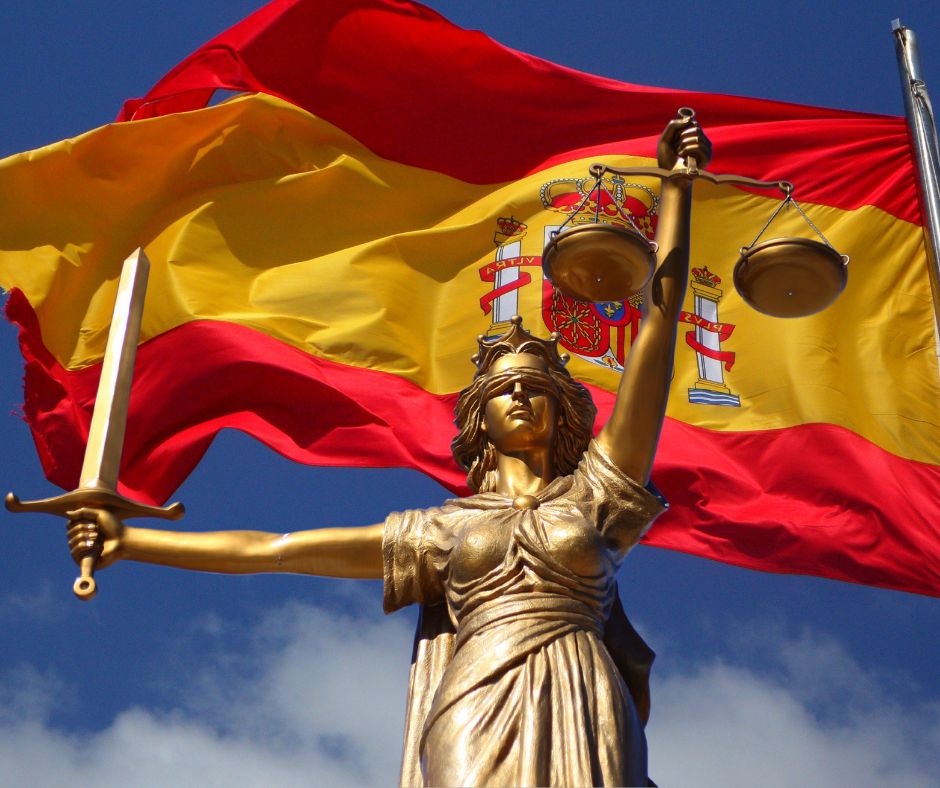Debt Recovery
At Castelo our team of debt recovery experts act quickly and firmly to recover any outstanding monies owed to you.
The costs and fees associated with debt recovery claims in the jurisdiction of England and Wales can vary depending on various factors, including the specific circumstances of the claim, the amount of debt being pursued, and the chosen approach for debt recovery.
The time it takes to recover debt depends on your circumstances, i.e. the size of the debt and the opponent in question.
Depending on the responsiveness and co-operation of the debtor, the debt recovery process can take several months.
When you or your business is owed money it can have a negative impact on your finances and be detrimental to your financial stability.
At Castelo our team of debt recovery experts act quickly and firmly to recover any outstanding monies owed to you.
Key Services
- Reviewing the details of your claim and any documentation and advising you on the best course of action.
- Drafting the initial letter of claim to the debtor to notify them that we intend to begin proceedings on your behalf to recover the debt. Individuals have 30 days to respond but are entitled to extend this by another 30 days, companies have a maximum of 7 days to respond.
- Completing the claim form and submitting it to the County Court Money Claims Centre (CCMCC) for proceedings to be served. This may take up to eight weeks subject to the Court and the opponent then has 14 days to respond to the claim.
- If your opponent admits to the debt, the Court would make a judgment for payment and we would write to your debtor requesting payment. If they do not take liability for the debt, the Court would make a default judgment.
- If enforcement proceedings are due because payments have not been made we would advise you on the different enforcement methods and your most suitable options. For example, instructing High Court Enforcement Officers (HCEO) to convert your CCJ into a High Court Writ of Control.
Being owed money can have a negative impact on your finances, this is why our debt recovery experts act quickly and firmly to recover any outstanding monies owed to you.
The debt recovery service is composed of four stages overall. Each of the stages and the applicable costs are discussed in more detail below after providing an overall picture regarding the timescale of the main steps within debt recovery proceedings.
Timescales
The timescale for debt recovery proceedings can vary depending on various factors, including the complexity of the case and the efficiency of the legal process. Whilst we can provide you with a general overview, it is important to note that specific timelines can differ from case to case. Here is a rough outline of the debt recovery process in the jurisdiction of England and Wales:
- Initial contact: when a debt is not repaid as agree, the creditor (or their solicitor if instructed to do so) typically contacts the debtor to request payment (via letters, phone calls, or emails).
- “Letter before Action”: we will see below that if the debtor fails to respond or make the payment, the creditor may send a formal “Letter before Action” outlining the debt, the amount owed, and the intention to take legal action if the debt remains unpaid within a specified timeframe of 30 days.
- Issuing a claim: if the debtor still does not settle the debt after receiving the letter before action, the creditor can initiate legal proceedings by filing a claim at the County Court.
- Acknowledgement of service: once the claim is filed, the debtor has a limited time consisting of 14 days to respond to the court by either admitting or disputing the debt.
- Judgement: if the debtor fails to respond within the limited time, the creditor can request a default judgement from the court. Alternatively, if the debtor disputes the debt, the court will consider the evidence presented by both parties and make a judgement accordingly.
- Enforcement: after obtaining a judgement in their favour, the creditor can proceed with enforcing the debt. Various enforcements methods are available, such as instructing enforcement agents, obtaining a charging order on property, issuing a statutory demand or applying an attachment of earnings order.
The duration of each step in the process can vary. Generally, it can take several weeks or even months to complete the debt recovery proceedings, depending on factors such as court availability, the complexity of the case, and the debtor´s response at each stage.
It is worth noting that if the debtor defends the claim or raises counterclaims, the process can become more complex and lengthy, potentially leading to further delays in the resolution of the debt recovery case.
Debt recovery stages, costs and our fees
There are four different stages to the debt recovery process. Below we will detail the legal fees, costs and disbursements related to all.
Stage one: Receiving your instructions and sending a “Letter before Action” on your behalf
In compliance with the Pre-action Protocol for Debt Claims, the first step is to send a “Letter before Action” to the debtor. The Protocol can be found on the website of the Ministry of Justice.
In order for us to prepare a “Letter before Action”, we will need your instructions. Once completed, the “Letter before Action” will be sent to the debtor by email (if he has an email account) and post within two weeks of receiving your instructions and payment for our services.
Our cost for completing the “Letter before Action” is £600 plus vat.
Please note that we would not be able to recover our costs for preparing the “Letter before Action” from the debtor unless it is clearly stated within your terms of business or other contractual document that applies between the debtor and you.
Stage two – Dealing with the debtor’s response
The debtor will have a period of up to 30 days of the date at the top of the “Letter before Action” to provide their response. Our charges for dealing with this stage in the process will be dependent on the debtor’s response, as we explain below.
(a) If the debtor chooses not to reply and fails to make payment of the debt
You can choose whether you wish to instruct us to issue Court proceedings on your behalf or commence insolvency proceedings against the debtor.
If you wish to instruct us to draft Court proceedings, we will proceed straight to stage three.
Regarding the insolvency proceedings against the debtor, further details can be found under the section “Insolvency Proceedings” below.
(b) If the debtor agrees to the debt but wants to negotiate payment terms
We will take your instructions with regards to any proposals made by the debtor to you. Afterwards, we can reply to the debtor if you wish to agree or reject their proposals. Our cost for each proposal is £150 plus vat. Please note that we will not be able to recover these costs from the debtor.
(c) If the debtor admits the debt and will pay now
You can choose if the debtor makes payment directly to you or to us to transfer it to you. Our fee to assist with this will be £150 plus vat.
(d) If the debtor disputes some or all of the debt
If the debtor disputes some or all of the debt, the debtor is required to set out in writing what sum is disputed, why and provide any documentation they are reliant upon in that regard.
If the debt is disputed then we will take further instructions from you as to whether or not you wish to proceed to take further legal action concerning the debt or not. At this time we would provide you with an estimate of costs for us to continue acting for you in relation to the disputed debt. That estimate of costs would be based upon our hourly rates, ranging from £250 plus vat to £350 plus vat based on experience.
Stage three – Drafting and issuing Court proceedings
If you instruct us to draft and issue court proceedings, we will endeavour to issue the claim within two weeks of our receipt of your instructions if we have been the lawyers acting for you since the “Letter before Action”.
The cost for this will be dependent on the value of the claim, as set out in the table below. In addition to our fees, you will need to pay the applicable court fee due on the issue of proceedings.
If the opposing party disputes your claim at any point, the fixed fee costs referred to below will not apply and we will charge at our hourly fee ranging from £250 plus vat to £350 plus vat based on the experience of the Solicitor and provide you with an estimate of costs for continuing to act further for you.
Court fees
You must pay a court fee when you make a debt recovery claim.
The court fees are based on the amount that you are claiming, plus any interest. You can find the information regarding making a court claim for money and the court fees in the Gov.uk website.
The court fees are also listed below:
Claim amount |
Fees |
Up to £300 |
£35 |
£300.01 to £500 |
£50 |
£500.01 to £1,000 |
£70 |
£1,000.01 to £3,000 |
£115 |
£3,000.01 to £5,000 |
£205 |
£5,000.01 to £10,000 |
£455 |
£10,000.01 to £200,000 |
£5% of the claim |
More than £200,000 |
£10,000 |
Regarding our legal fees, these apply as follows:
Debt value |
Our legal fee |
£Up to £10,000 |
£500 plus VAT |
£10,000 to £50,000 |
£750 plus vat |
Beyond £50,000 |
5% the value of the claim |
Stage four – Requesting County Court Judgment
After the court issues proceedings, it will send court documentation to the debtor. Afterwards, the debtor will have a period of 14 days from his receipt of court papers, and have several options as described in the next points a) to c):
(a) Filing an Acknowledgment of Service:
If the debtor files an Acknowledgement of Service within 14 days of receiving the claim, he will then have 28 days from receipt of the claim to file and serve a Defence. If he fails to do so then a County Court Judgment can be requested at that stage. Our costs for requesting Judgment are detailed in the table below, after the point number c).
(b) Filing a Defence:
If the debtor files and serves a Defence, we will inform you of this and provide you with an estimate of our legal costs for continuing to act on your behalf in relation to the disputed debt, which will be based on the experience of the Solicitor and charge at the range of £250 plus vat to £350 plus vat / per hour.
(c) Filing an Admission or a Part Admission:
If the debtor files an Admission or Part Admission following his receipt of court proceedings, a County Court Judgment can be sought.
Our fees for seeking to enter Judgment on your behalf are set out in the table below.
Debt value |
Our legal fee |
£Up to £10,000 |
£125 plus vat |
£Above £10,000 |
£250 plus vat |
Enforcement of a County Court Judgment
Once a County Court Judgment has been obtained, there are several enforcement methods that can be used to seek to recover your debt. The possible options that can be sought to enforce a County Court Judgment include the following:
(1) Issuing a statutory demand for companies and individuals.
(2) Bankruptcy proceedings.
(3) Winding up.
(4) Seeking to obtain a Charging Order (a charge over the debtor’s property).
(5) Seeking to obtain a Third Party Debt Order (for a bank/building society which holds funds on behalf of the debtor to make payment to the creditor directly).
(6) Seeking an Attachment of Earnings order (for the debtor’s employer to pay the debt out of the debtor’s salary).
(7) Writ or Warrant of Control (instructing an Enforcement Officer, formerly called “bailiff”, to seize goods in satisfaction).
Enforcement costs at this stage will vary depending on the owed amount. Our cost for preparing any of the above will be as follows. For any extra work after issuing any of the above, we will charge at our hourly fee for any further work and correspondence that need having with the other parties, ranging our hourly fee from £250 plus vat to £350.
Our legal fees to commence any of the enforcement options mentioned in the above points 1 to 7 are as follows:
Debt value |
Our legal fee |
£Up to £10,000 |
£500 plus vat |
£Above £10,000 |
£750 plus vat |
The Team
All debt recovery cases will be managed by our specialist debt recovery team which includes Castelo Partner, Ana Afonso, as well as our expert solicitors who will also work with other members of our team with the appropriate level of experience.
You can find out more about our team at Castelo Solicitors here.
Average pricing
Hourly Fees: £250-350 plus VAT based on the experience of the Solicitor
Average Costs: £2,000-£10,00 plus VAT
Complex Cases: £10,000 +
Disbursements
Regarding the disbursements fees, when you instruct us to deal with a case of debt recovery, besides our legal fees and the court fees, you may need to pay for the following disbursements as well:
- Process Server Fees: If a process server is required to personally serve documents to the debtor, the fees normally range from £100 plus vat to £200 plus vat, but this could further vary depending on your location or if several attempts are needed to serve the debtor.
- Tracing Agent Fees: If a tracing agent is engaged to locate a debtor who has absconded or changed their address, the fees normally range from £100 to £200, but this could further vary depending on your location and if several attempts are needed to trace the debtor.
- Search Fees: Mention any fees associated with conducting searches to locate the debtor’s assets, such as land registry searches. The fee for obtaining a title register for instance is £3.
- Miscellaneous Disbursements: amongst these are any postage needed (for which we charge £12 to arrange special delivery postage to be sent).
Besides, costs and disbursements mentioned above such as the respective Court fees, other additional costs as explained in turn below may also be incurred.
Other additional costs
(1) The “Statutory demand”
A statutory demand can be served on the debtor if there is an owed undisputed debt of at least £750 (if the debtor is a company) or £5,000 (if the debtor is an individual or sole trader). A statutory demand puts the debtor on notice that you will initiate insolvency proceedings against them if the debt is not paid. If the debt is not paid within a period of 21 days of service of the statutory demand, you would be entitled to petition for the debtor company to be wound up or an individual debtor to be made bankrupt, unless the debtor seeks to challenge the statutory demand.
If the debtor is wound up (in case of a company) or made bankrupt (in case of an individual), you would then be entitled to seek to recover the debt owed to you from the bankrupt’s estate or the liquidated company’s assets following the appointment of an Insolvency Practitioner.
Amongst the disbursements when serving a statutory demand are the following:
- Court fees: any current court fee can be found in the following UK Government website, by clicking on this link.
- Process Server Fees: If a process server is required to personally serve the statutory demand to the debtor, the fees normally range from £100 plus vat to £200 plus vat, but this could further vary depending on your location or if several attempts are needed to serve the debtor.
- Third party costs, such as any foreign lawyer’s fees to serve a statutory demand abroad: as you would need to serve a statutory demand according to local laws besides abiding by the UK rules, foreign lawyer´s fees would need to be taken into account.
2) Bankruptcy proceedings:
This being applicable to cases where the matter is determined at the first hearing, with no issues with regards to service, when the debt is not disputed or when a court judgement has been obtained which has not been set aside or appealed. The costs and disbursement fees that need to be considered are as follows:
- Court fees: any current court fee can be found in the following UK Government website, by clicking on this link.
- Deposit fees: the creditor´s bankruptcy petition deposit is currently £1,500, as can be seen in the following link by the UK Government website regarding “Creditor petition bankruptcy deposit” .
- Process Server Fees: If a process server is required to personally serve the the petition to the debtor, the fees normally range from £100 plus vat to £200 plus vat, but this could further vary depending on your location or if several attempts are needed to serve the debtor.
- Search fees: included the fees payable to institutions such as the Land Registry, to obtain documents such as the title register of a property, being the cost £3.
- Barrister´s legal fees for representing the client in Court if necessary: fees vary depending on experience and location.
(3) Winding up:
This is applicable to cases where the matter is determined at the first hearing and only in cases whereby the debt is not disputed or if a Court judgement has been obtained which has not been set aside or appealed. The costs and disbursement fees that need to be considered are as follows:
- Court fees: any current court fee can be found in the following UK Government website, by clicking on this link.
- Deposit fees: the company liquidation petition deposit is currently £2,600, as can be seen in the following link by the UK Government website regarding “Company liquidation petition deposit”.
- Advertisement in London Gazette: the current fee to pay for the advertisement in the London Gazette can be found in the following section at the London Gazette website, currently starting from £109.20 (excluded VAT).
- Process Server Fees: If a process server is required to personally serve the petition to the debtor, the fees normally range from £100 plus vat to £200 plus vat, but this could further vary depending on your location or if several attempts are needed to serve the debtor.
- Search fees: included the fees payable to institutions such as the Land Registry, to obtain documents such as the title register of a property, being the cost £3.
- Barrister´s legal fees for representing the client in Court if necessary: fees vary depending on experience and location.
(4) Charging Order:
When seeking to obtain a charge over the debtor’s property, the following costs and disbursements need to be taken into account:
- Court fees (included the registration of charging order): any current court fee can be found in the following UK Government website, by clicking on this link.
- Search fees: included the fees payable to institutions such as the Land Registry, to obtain documents such as the title register of a property, being the cost £3.
- Barrister´s legal fees for representing the client in Court if necessary – fees vary depending on experience and location.
(5) Third party Debt Order:
When seeking to obtain a Third Party Debt Order, the following costs and disbursements need to be taken into account:
- Court fees (included the registration of charging order): any current court fee can be found in the following UK Government website, by clicking on this link.
- Barrister´s legal fees for representing the client in Court if necessary – fees vary depending on experience and location.
(6) Seeking an Attachment of Earnings order
When seeking for the debtor’s employer to pay the debt out of the debtor’s salary and so an Attachment of Earnings Order, the following costs and disbursements need to be considered:
- Court fees: any current court fee can be found in the following UK Government website, by clicking on this link.
(7) Writ or Warrant of Control:
This option will depend on the debtor’s ability to pay and whether there are any assets which may be seized and whether a repayment agreement is entered into. The following costs and disbursements need to be considered:
- Court fees: any current court fee can be found in the following UK Government website, by clicking on this link.
- Enforcement agent fees: to know more about the fees that enforcement agent fees can charge, please read the following link by the Citizens Bureau regarding “Check what fees bailiffs can charge”.
NOTE:
*Our prices do not include VAT and disbursements. VAT is applicable on our fees at the rate of 20%.
**The pricing information on this page applies only to the services described on this page as provided by Castelo Solicitors and does not apply to services provided outside of scope of those set out here or to services provided outside of the United Kingdom.






